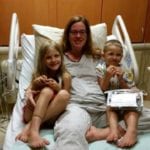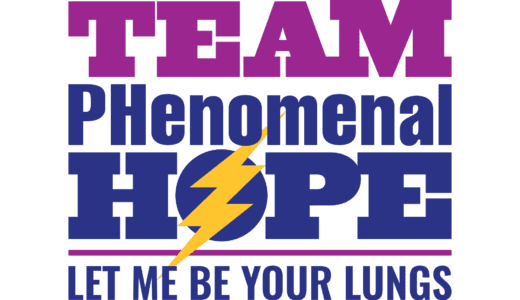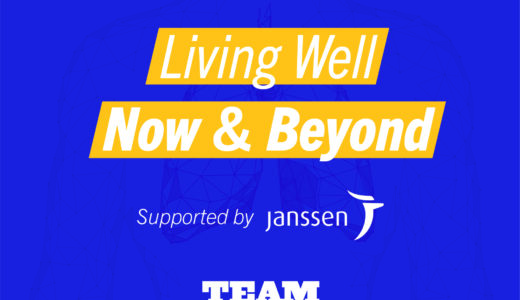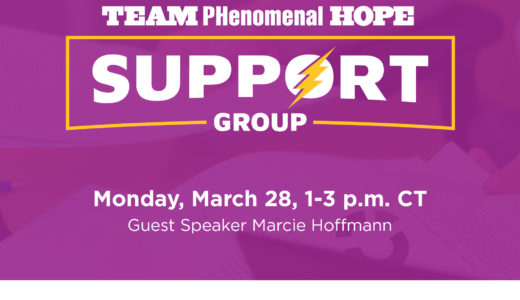Becca Hubbard
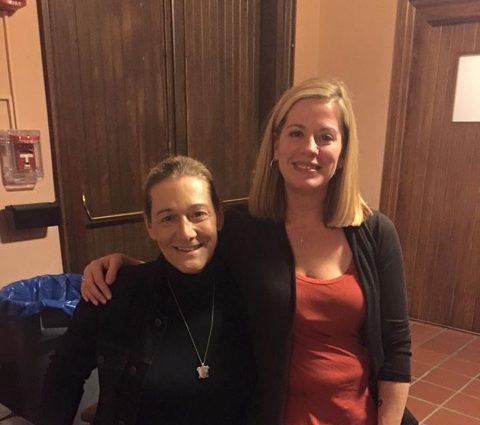
Unlike many PH patients, my diagnosis came quickly and out of the blue. Over about a two-week period, I noticed that I was getting winded pretty easily. I thought it was my asthma, so I’d use my emergency inhaler and relax for a bit, and I’d be okay. Then one day I had to stop and rest while going up the stairs at my house, and later that night after carrying my three-year old daughter to bed, it took me about 20 minutes to catch my breath.
There was no way I could be a good mom if I had to wear this pump all the time.
I was scheduled for minor surgery later that week, so I thought I should get it checked out. The next day, I had my sister take me to the ER, fully expecting them to give me a breathing treatment and steroids and send me on my way. One of the ER docs asked me, almost as an afterthought, if my shortness of breath got worse when I was laying down. I said yes, and he said, “That’s a symptom of heart failure. You’re 35, your lungs look good, so it’s likely not that, but we’ll do a few tests to rule that out.”
It would be about 8 days before I left the hospital, with my new diagnosis of Idiopathic Pulmonary Arterial Hypertension.
Based on my age and the severity of my condition, my doc started me on IV Remodulin right away. And by right away, I mean after the two weeks it took the insurance company to approve the medication, while I laid in bed unable to even walk to the bathroom on my own.
I had to have a baby-sitter when my husband went to work, even if my kids weren’t there, because I would pass out with even the slightest exertion. My kids were two and almost-four, and I spent many nights post-diagnosis picturing their milestones without me there to see them: kindergarten, riding a bike, high school, college, marriage, kids of their own … those first few months after my diagnosis were dark.
There was no way I could be a good mom if I had to wear this pump all the time.
There was no way my husband would still find me attractive with a central line hanging out of my chest.
And there was no way we’d ever adjust to this.
When I was in high school, I had a teacher, who, when I’d complain about something, would always respond with, “God helps those who help themselves.” At 16 years old, I found that advice infuriating. But years later, after my diagnosis, I find that advice motivating.
Of course lying in bed waiting for someone else to fix it wouldn’t help. But I have had wonderful support throughout. I’m fortunate to work at The Ohio State University, where the Ross Heart Hospital at the Wexner Medical Center is one of just a few places in Ohio that can treat PH.
Veronica Franco is my cardiologist at the Ross, and it is safe to say that no one in the world has had a more significant impact on my life than she has. I hear a lot of PH patients talk about problems with their health insurance and their doctors, and I thank God that He sent me to Ohio State and Dr. Franco. When she makes decisions about my care, I truly feel like she considers every part of my life: health, work, family, and the fact that as a 39-year old wife and mother, my treatment preferences might be different from her other patients.
I think it was actually better that my diagnosis came when my kids were young, because they don’t remember me without it – it’s just their normal. I’m fortunate that the course of treatment my doc has me on is working very well – my heart function is completely normal right now, so the only thing I’m really not able to do with my kids is swim. But my hope is that someday soon, the implantable pump will take care of that!



